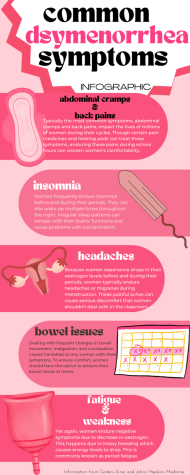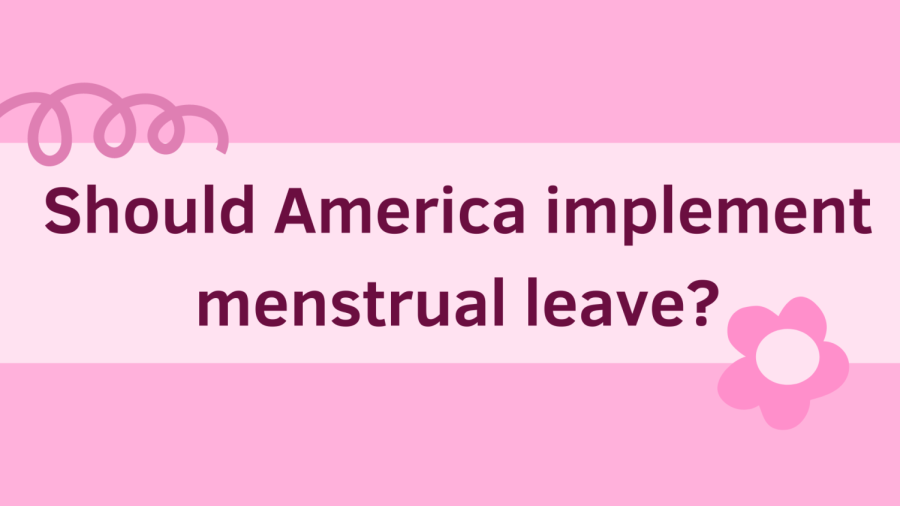United States, wake up.
Educational systems and workplaces in the United States fail to factor in painful symptoms associated with menstrual cycles as excused reasons for absences. Given that teenaged-girls in schools and women in the workforce endure periods and the harsh symptoms that follow, providing accommodations for these women remains a necessary step that the United States must take.
May 15, 2023
Considering that menstrual cycles remain a natural process for women, people in the U.S. may argue that menstrual leave for work, school or other accommodations would display unfairness to employees or students who do not experience menstrual cycles. Nevertheless, a woman’s period can pose challenges, especially if she experiences severe, painful symptoms during her period. Providing accommodations and menstrual leave for women during their cycles would support their physical health and emotional well-being.
Countries in Asia such as Japan, Taiwan and Indonesia provide laws that allow working women to take time off during their menstrual cycles. Moreover, in Zambia, women can take a day off each month as menstrual leave. Unfortunately, this can cause employers to discriminate against women while hiring because these women would work less. Nevertheless, employers should perceive these laws as the next step toward gender equality by aiding women who experience severe pain during their periods, not as an excuse to discriminate.
“I actually didn’t know other countries did that. That’s so cool. I think that because periods are natural, people should be able to miss school and not be worrying about an unexcused absence. America should do that also,” junior Holly Stallings said.
These accommodations would remain voluntary rather than required; employers and schools would not require women to disclose any private information about their cycles. Women should hold the option to miss work or school with an excused absence if they do not wish to endure painful symptoms during work or school hours.
With symptoms such as insomnia and cramps, attending work or school while menstruating can actually make women less efficient. America should not force women to work sleep-deprived and in pain if the nation claims to promote equality. The notion of menstrual leave remains a concept of basic human rights. Women and men receive the option of maternal and paternal leave as well as the option for medical leave. If menstrual cycles stand as a natural medical condition for women, then women should receive paid leave as they would any other sickness.

Moreover, schools in Cobb County School District such as NC only allow five unexcused absences per year before the school sends a notification letter home—for context, the average teenage woman menstruates every 28 days and lasts for approximately five days. If students exceed seven absences, consequences follow such as home visits from social workers. By providing the option for menstrual cycles excusing absences, schools will reduce their unexcused absence rates.
“I know that I have definitely missed school before because of my period. I think that girls always talk about cramping and stuff. I have really bad cramps and sometimes I don’t even think I can leave my bed,” junior Nijah Jones said.
Though the concept of accommodations for painful periods can worsen issues such as hiring and salary discrimination, this concept can also take a much-needed step toward gender equality. If the United States’s leaders value justness to the extent they claim, laws that provide menstrual leave should exist and women who choose this option should receive protection from anti-discrimination acts such as Title VII of the Civil Rights Act of 1964.







